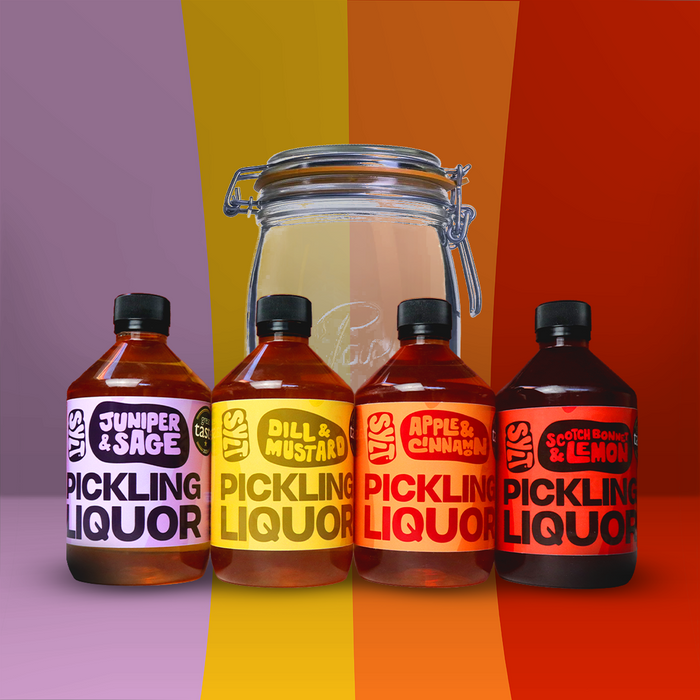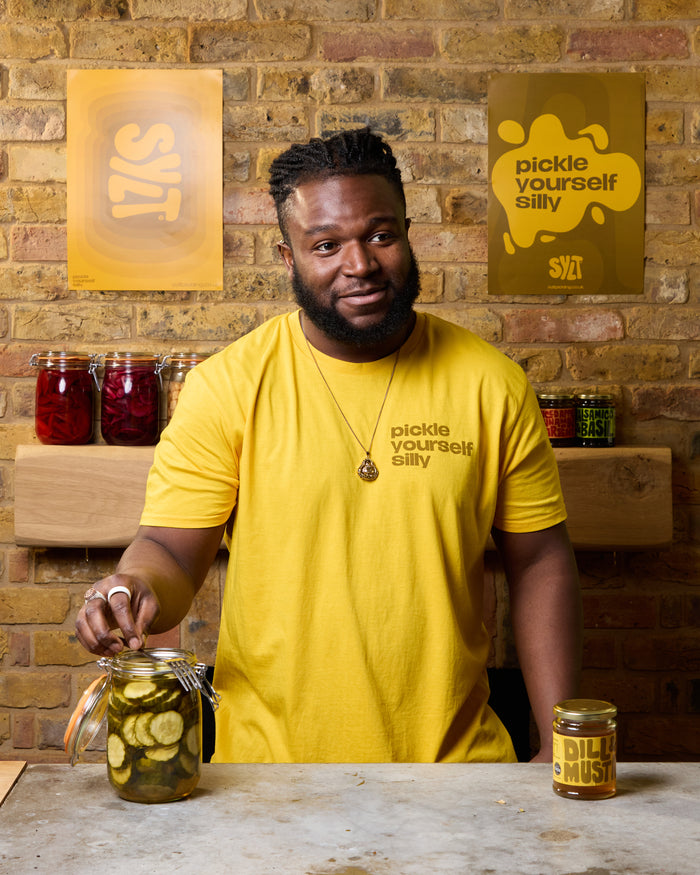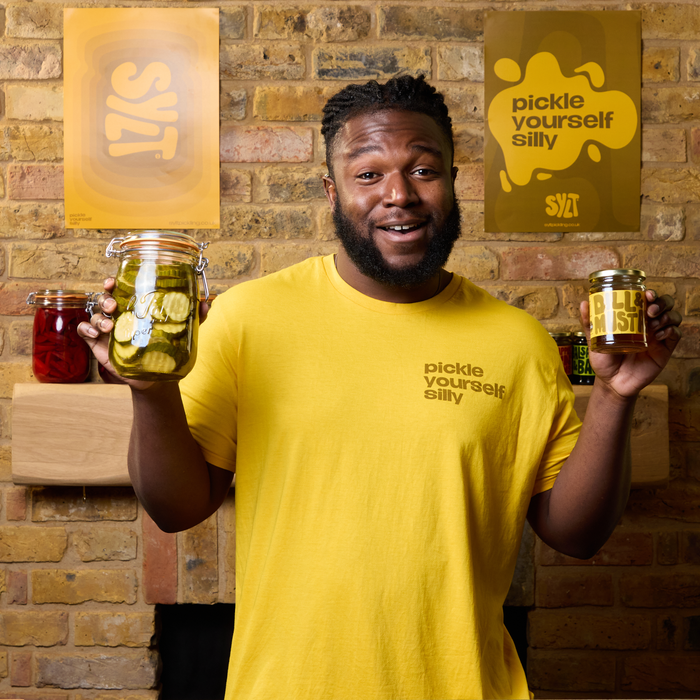FAQ
Find the answer to some of the most common pickle-related queries below
That basically depends on what you pickle, but for most types of produce, they will be ready and delicious after only a few hours (which is generally speaking about as long as we're able to contain ourselves). That being said, you probably have to leave it in for 3-4 days until it reaches its optimum level of pickledness. One of the many significant upsides to pickling is also that it will only get better the longer you leave it (up to a point at least, see next question).
There are a few exceptions to the short pickling time. Sturdier produce, like potatoes and root vegetables need longer than your average pickling subject, and we would recommend giving these at least a week before you tuck in.
Commonly, pickles refer to cucumbers, yes! But here at Sylt we encourage creativity when pickling, and truly believe that anything can be pickled with the right mindset. So when we speak about pickles, we simply mean anything that has been pickled. Why limit yourself to only cucumbers?
That is the beauty of preservation – not for a long time. You can enjoy your pickles for up to a couple of years if they are stored in the fridge using a sealed container. Although resisting pickles for this long has never been a problem we have faced!
They can be, however ours aren't. The preservative qualities of our pickling liquids primarily come from the acidity of the vinegar base.
Pickled produce can help to restore your electrolytes and of course offer the nutrients which are preserved in the chosen pickled vegetable. But it doesn't stop there – vinegar is known to be an excellent regulator of blood sugar, so a shot of Sylt to start your day can curb your snacketite. It can reduce the risk of cramps too, just ask the Philadelphia Eagles (or Google the Pickle Juice game if you don't have a direct line). To read more about the health benefits of pickling, check out this blog post.
Pickled and fermented foods share the same tangy flavour but most pickles are not fermented. Their acidic taste is achieved through different processes. The difference lies in the pickling liquid. Whilst pickling soaks vegetables in an acid (usually vinegar), fermented foods are made when naturally occurring bacteria feed off the sugar in the food in anaerobic conditions. This allows them to grow without microbes forming and produces the vinegar-like taste we all know and love.
Pickling preserves foods since the added acid kills bacteria and prevents additional growth of microbes. Fermentation preserves foods because the anaerobic conditions prevent microbes from developing.
Unfermented pickle juice is not necessarily nutritious however it does contain electrolytes and can be beneficial for you in a variety of circumstances. People often use pickling brine to aid cramps, menstrual pains and even as a hangover cure.
You need not worry about this one since we’ve done the hard work for you! Here at Sylt we have meticulously tried and tested our secret recipes to bring you the perfectly balanced, eclectic selection of pickling brines that we have on offer. Choose from our classic Dill & Mustard, spicy Scotch Bonnet & Sage, autumnal Spiced Apple with Cardamom, floral Juniper & Sage or deep and rich Balsamico & Basil.
All Sylt Pickling vinegar are gluten free. Our pickling liquids are made with gluten free vinegars such as Balsamico, cider and wine vinegars, rather than malt vinegar which sometimes contain traces of gluten.
All of our pickling liquids are 100% vegan friendly. It is, however, worth remembering some white wine vinegar or cider vinegar you might see could use a base product which is not vegan, so always make sure to read the label.



